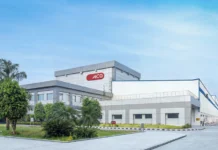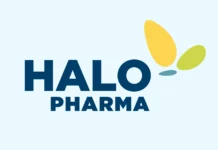Pharmaceutical businesses increasingly outsource their product development and manufacture to Contract Development and manufacture Organizations (CDMOs), which operate in a fragmented sector that is experiencing significant restructuring. However, a lot of CDMOs put their competitiveness at risk by not making the most of price initiatives. In order to prosper, they need to quickly restructure their business plans, taking the rightful worth of their goods and services and incorporating it into their prices to maximize revenue.
CDMOs often concentrate on expenses and silos and use inconsistent, opaque, and short-term pricing practices. This results in complex price systems that vary based on location. Rather, CDMOs want to switch to simplified offer packages that highlight value-added services and consolidated cost-accounting procedures.
It is necessary to define offerings and provide uniformity via standard hours multiplied by appropriate hourly rates in order to simplify offers and harmonize prices. Nevertheless, CDMOs must use diversified cost rates by service line and department; one-size-fits-all prices are inadequate. To achieve this, benchmarking, comparing fictitious cost rates with real ones, and standardizing via markups or markdowns are the steps involved.
CDMOs often base their prices on work packages or milestones, which ignores the complexity differences between different tasks. It is difficult to estimate the costs of CDMO’s highly specialized services, in contrast to other businesses where pricing is simple. Cost determination becomes arbitrary, and inconsistent hourly inputs and costing rates across locations make the situation worse.
Three steps are recommended to address these issues:
- Sort services into distinct work packages and list the tasks involved.
- Establish hourly rates per cost center while taking necessary activities into account.
- Assign standard hours to each activity across cost centers.
Despite this approach’s apparent simplicity, a lot of CDMOs find it difficult to put it into practice because of inertia and hidden repercussions. However, its advantages are indisputable:
- Quick and easy quote procedure that improves client discussions and saves time.
- Reduced interdepartmental contacts and increased internal performance.
- Enhanced transparency by measuring and tracking regular hours.
- Personalized offerings that make use of value-adding services and tiered logic.
There are over 400 CDMOs in the world, and they all claim to provide end-to-end services. It is common knowledge that although each CDMO offers a unique value proposition, they are not all the same. There are several challenges facing innovators these days, such as the growing complexity of supply chains, labor constraints, and the need to assess a record number of CDMOs. Working closely with their customers, an end-to-end integrated service provider offers a fully integrated solution that covers the whole range, from early drug research to ultimate commercialization. This includes a range of fill-finish options. A truly integrated, end-to-end collaboration offers increased adaptability, reduced risk, improved scheduling, and total cost savings.
Because of new delivery methods and modalities, the variety of biopharmaceutical pipelines is growing, which increases the need for fill-finish capacity in the CDMO industry. Of the more than 400 CDMOs worldwide, only a small portion can claim fully integrated, all-inclusive drug product capabilities that meet the rapidly increasing demand. A wide range of products, including traditional monoclonal antibodies, fusion proteins, bispecifics, ADCs, enzymes, and antibody-based products of the future such as gene and cell treatments, need to be handled by a CDMO with fill-finish operations experience. The difficulty is not only in fulfilling demand, but also in finding a capable, seasoned fill-finish CDMO partner. An end-to-end integrated service provider may use their wealth of fill-finish knowledge by smoothly combining drug ingredient and drug product capabilities, as shown by their substantial track record of over 500 commercial batches.




















